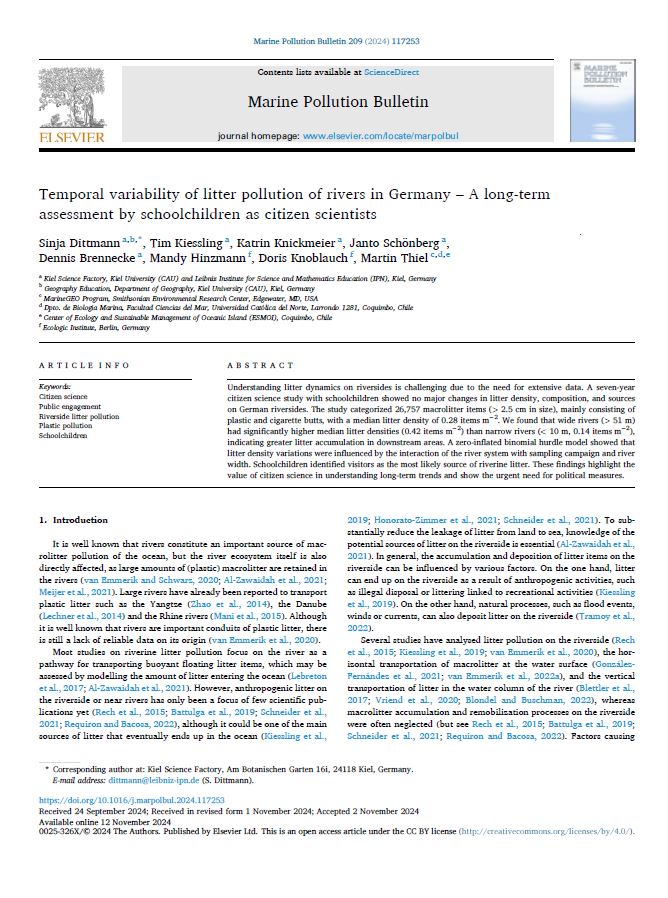Ivan Radic, CC BY 2.0
The Plastic Pirates start a new small project in the autumn of 2024. The new focus this time: the river system of the Danube! The second-longest river of Europe, stretching over 2.850 kilometers, starts in the Black Forrest, and flows through a total of 10 countries before emptying in the Black Sea. The river system includes many important tributaries, for example the Isar, Inn and Lech. The new project focused on the Danube is an addition to the ongoing analysis of the Elbe River System and the German coasts. Gaining further insights in plastic pollution of these water bodies will be the aim of the Plastic Pirates’ 2024 autumn campaign period.
Since 2016, young people have been successfully researching and mapping plastic pollution in and around rivers in Germany. As part of the citizen research project Plastic Pirates, they take on the role of scientists and investigate the state of our rivers. More than 1,400 data sets (status as of May 2024) on the occurrence of litter have already been collected in this way.
Opportunities to participate
School classes and youth groups in the Danube Catchment Area can participate in the upcoming campaign period in the autumn of 2024. This means they can take samples at the Danube itself or at one of its tributaries, such as the Isar, Altmühl, Regen and others. In addition, participation is possible at the Elbe River System and at German coasts.
The accompanying teaching materials as well as the project booklet guide through the sampling campaign and can be ordered by teachers and group leaders free of charge on the Plastic Pirates website as long as stocks last. As part of the sampling, the participating young people familiarize themselves with the ocean and water cycles. They explore the issue of plastic waste in the environment. In the process, they learn what scientific work means and try it out for themselves.
What will happen with the results?
The collected research data is uploaded to a central web platform and then analyzed by scientists from the Kiel Science Factory and Ecologic Institute. They will also be used to derive suitable solutions for the plastics crisis. The project is also part of the European initiative "Plastic Pirates – Go Europe!" and there is close cooperation with other participating countries across Europe.





